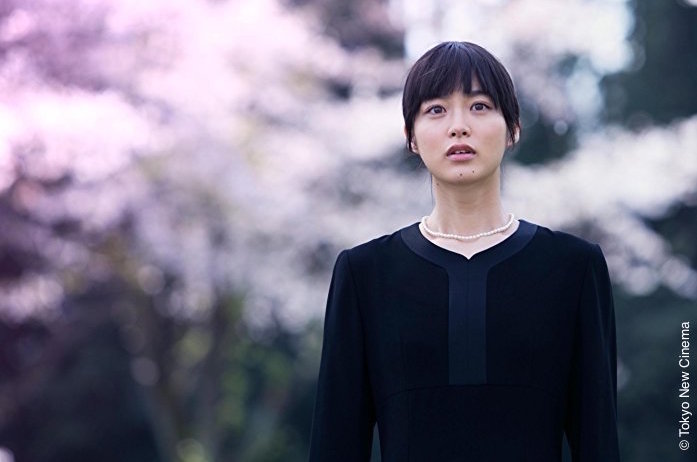
Some of my favorite Japanese movies these days are coming out of the small indie collective Tokyo New Cinema, and this film is a prime example. Run by producer/CEO Hikaru Kinouchi, this tight-knit band produces low-budget but finely-tuned works with a focus on young directors. Summer Blooms won the FIPRESCI Jury Prize at the Moscow International Film Festival last year and was also given the Russian Critics’ Jury Special Mention.
This quiet, touching story is reminiscent of Japanese films past, where acute attention to detail and the minutiae of people’s lives draw a rich portrait of the human experience. Hatsumi (Aki Asakura) is living an unmoored existence in a Tokyo suburb. She works part-time at a soba shop and quietly mourns her ex-boyfriend who passed away three years ago. After his death she gave up her career as a middle school teacher and, detached from life, is barely getting by as a waitress. Her forlorn existence is shaken by a series of events which make her start to reevaluate her life.
The mom and pop soba-ya that provides a homey and safe atmosphere for Hatsumi decides to shut down. She unwillingly accepts six weeks’ severance pay so she has the means to do nothing, which she indulges in. She has a hard time bringing herself to accept even a substitute position from an old teacher friend who is taking maternity leave. Then out of nowhere the kooky and somewhat obnoxious Kaede (Yuriko Kawasaki) appears in Hatsumi’s life. An ex-middle school student of hers, Kaede has transformed from a shy girl into a wild, high-energy fireball who is trying to make it as a jazz singer. Soon, it becomes clear her boyfriend is abusing her and Hatsumi is faced with the decision of whether or not to intervene.
A more direct challenge to Hatsumi’s self-imposed exile comes when a local factory worker, Totaro (Takahiro Miura), expresses his long-held feelings for her. It’s unclear whether Hatsumi refuses to date because of her love for her passed ex-boyfriend Kentaro, or her regret at that relationship, but her reticence to get romantically involved is clear. The reveal comes when Hatsumi finally decides to visit Kentaro’s home in the countryside far from Tokyo.
Crafted with precise insight into human nature and adapt expression of how hard feelings linger, Summer Blooms builds a rich and touching portrait without any grand strokes or melodrama. The details are finely observed and Asakura does a superb job as the restrained, wounded and lost Hatsumi. In some ways a throwback to the Golden Era of Japanese film in the 1950s, it’s a breath of fresh air for Japanese cinema which is laboring under the commercial and melodramatic paradigms of today.
Japanese title: Shigatsu no Nagai Yume (88 min)







